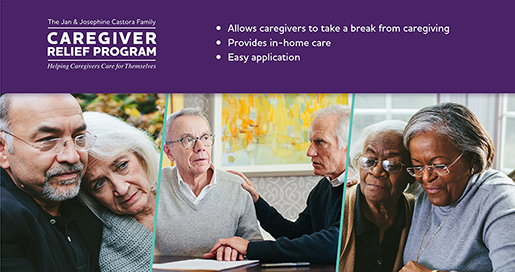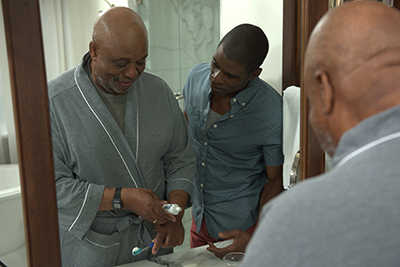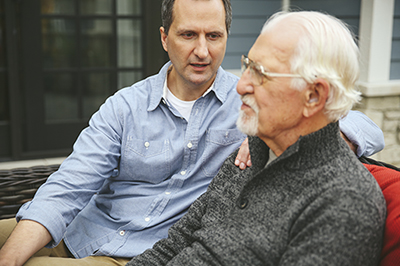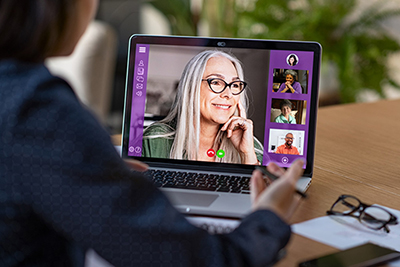Helping Caregivers Care for Themselves
The Jan & Josephine Castora Family Caregiver Relief Program pays for non-medical in-home care services for dementia or Alzheimer’s caregivers providing daily care for a loved one. The grant program allows caregivers to benefit from regularly scheduled breaks to allow them to focus on their own physical, emotional and social needs.
Helping Non-Paid Caregivers
493,000 Ohioans provide unpaid care for people with Alzheimer’s or other dementias. Nationwide statistics show that 83 percent of the help provided to older adults in the United States comes from family members, friends or other unpaid caregivers.
The goal of the Jan & Josephine Castora Family Caregiver Relief Program is to provide ongoing regular breaks for any caregiver who currently does not have paid in-home care services in place. Agency caregivers can provide companion care or personal care services such as bathing, dressing and grooming.
The application process involves a screening interview conducted by Alzheimer’s Association clinical staff.
For more information or to apply, call 216.206.8389 or email caregiverreliefprogram@alz.org.
Counties Where Eligible Participants Must Live
To be eligible, participants must live in one of the 21 counties served by the Cleveland Area or Greater East Ohio chapters: Ashtabula, Belmont, Carroll, Columbiana, Coshocton, Cuyahoga, Geauga, Guernsey, Harrison, Holmes, Jefferson, Lake, Lorain, Mahoning, Medina, Portage, Stark, Summit, Trumbull, Tuscarawas and Wayne.
Availability of this program is subject to change based on participating home care company coverage.
Why Caregiver Relief is Important
While caregiving can be personally rewarding, continuous work without a break can have a negative impact on a caregiver’s health. From stress to depression and lack of personal time, caregiving may take a physical, mental, and emotional toll. Some caregivers may even forgo seeing their doctor when necessary due to time constraints, which could lead to their own health complications.
It is very important for caregivers to take breaks, but learning how can be difficult. Caregivers can feel overwhelmed with responsibilities and sometimes may even feel guilty for needing some time for themselves. A family caregiver may desire to take a break to prevent burnout, but if there is no one available to take over, their time off may be postponed.
Statistics about Caregiving
Who are Alzheimer’s and Dementia Caregivers?
- More than 11 million Americans provide unpaid care for people with Alzheimer’s or other dementias.
- Among primary caregivers of people with dementia, over half take care of their parents.
- Two thirds of dementia caregivers are women.
.jpg)
Caring for someone with Alzheimer’s or dementia is exceptionally demanding.
- Dementia caregivers are more likely to assist with activities of daily living (ADLs), particularly bathing or showering,handling incontinence and giving medication.

Caregiving responsibilities often persist for many years – even decades.
- Studies indicate that people aged 65 and older survive an average of four to eight years after a diagnosis of Alzheimer’s, yet some live as long as 20 years with the disease.

Today’s workforce is filled with employees acting as Alzheimer’s caregivers.
- 57 percent of employed caregivers had to go in to work late, leave early or take time off due to caregiving demands.

Other Alzheimer’s Association Caregiver Resources
www.alz.org/cleveland/helping_you